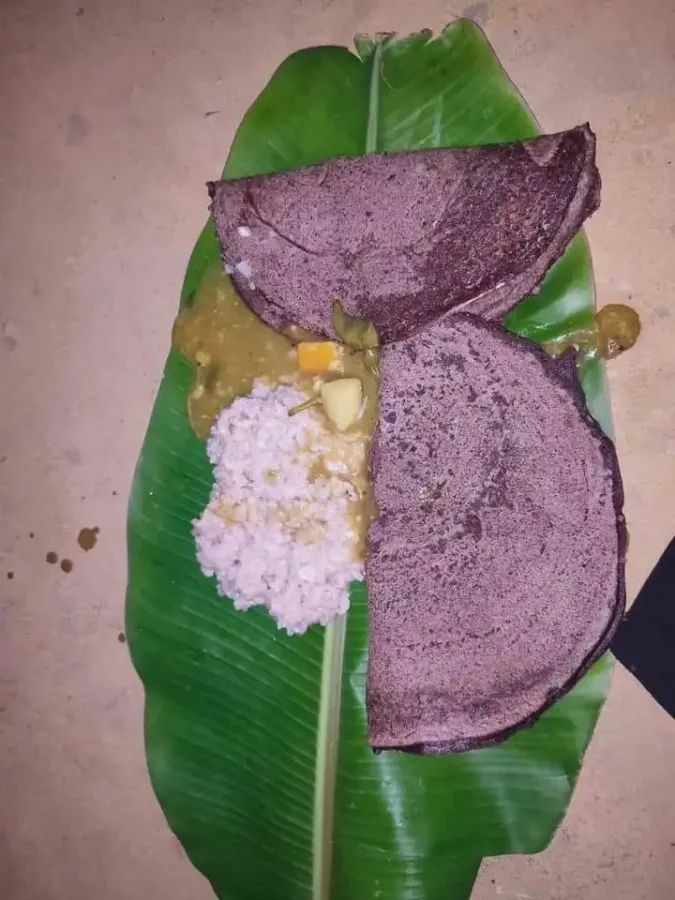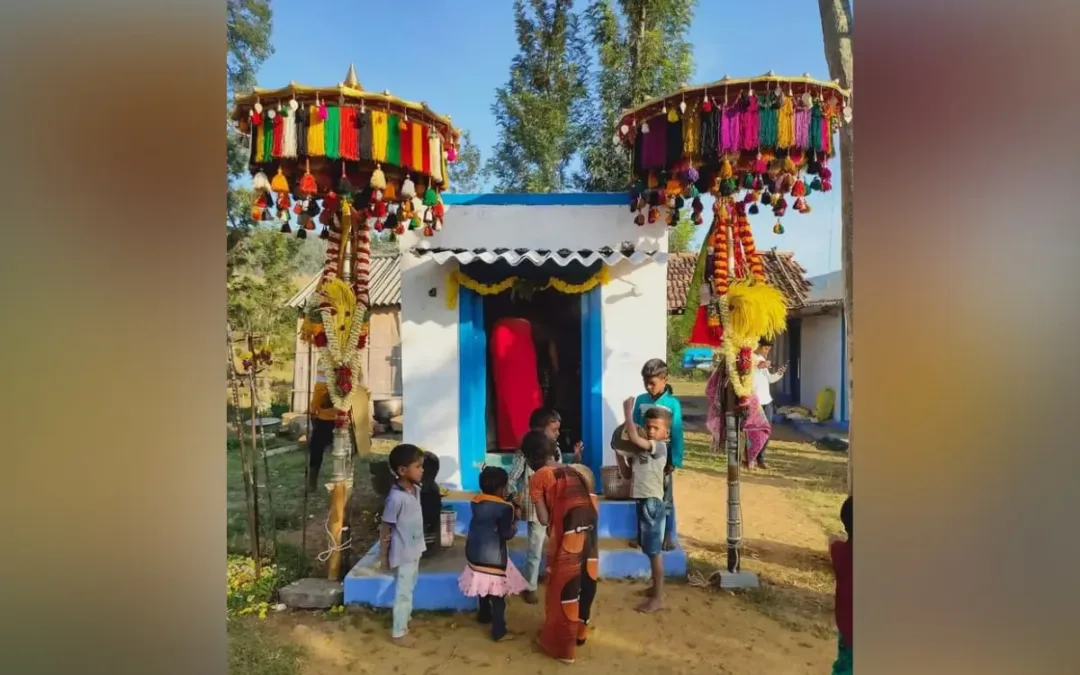Read in : தமிழ்
The Pongal festival ingrained in the popular imagination conjures up images of cooking rice in an open fire, buffaloes and cows being decorated and celebrated and people meticulously arranging sugarcane, turmeric leaves, flowers and other paraphernalia.
In tribal villages of the Western Ghats, however, Pongal is different. It is a festival held in celebration of elephants. Behind this type of Pongal is a tale, historical and cultural, which mainstream society may not be aware of at all.
In ancient times, several methods were adopted to fend off wildlife, some violent and some peaceful and belief-oriented. The latter became part of a strong and sacred faith system which resulted in the creation of rituals and worship ceremonies surrounding elephants, as human-animal conflict increased.
Anilnatham is a village also called Kuntri in the Western Ghats ranges falling under Sathyamangalam in Erode district. The lush village inhabited by tribal people is frequented by elephants. Hence the people belonging to the Lingayat and Solakar tribes dare not venture out at night when elephants may roam about.
The tribal Pongal festival involves rituals by which people living in harmony with nature express their gratitude to the natural elements of land, water, air, sky and fire which safeguard their livelihood and to the wild animals in the hope that they will live in harmony and keep away from their crops
The people here are mainly engaged in agriculture and cattle-rearing. Several people have had nightmarish experiences while grazing their cattle in the open fields as they have been attacked by wild animals such as boar, elephants and so on. The number of people killed and injured in attacks by wild animals has been increasing as well.
Agriculture is challenging work in these parts. Right from the planting of seeds to cultivating crops such as corn, thinai, saamai and other millets to harvesting them, every stage is hard, as they contend with likely incursions by wild animals anytime. The tribal people keep vigil over crops from tree houses. Yet, sometimes wild animals invade the fields and go on a rampage, just as the crops begin to sprout.
Also Read: Handling a rogue wild elephant: Two paths by two states
To safeguard the crops and bring the harvest safely back home is a laborious and risky business. There have been occasions when elephants called Pommarayan in tribal parlance destroy the crops, devouring them. The people had to do something to end this.

During the festival all the cereals and grains harvested and cooked into a roti-like dish by the menfolk while women take care of decorating the temple and making other arrangements for the festival
Thus evolved the tribal Pongal festival which worships the deity of Pommarayan in elaborate ceremonies. Like the rest of the Tamil communities, these tribes too celebrate their Pongal in the Tamil month of Thai (January).
The tribal Pongal festival involves rituals by which people living in harmony with nature express their gratitude to the natural elements of land, water, air, sky and fire which safeguard their livelihood and to the wild animals in the hope that they will live in harmony and keep away from their crops.
At the Pommarayan temple, the food is offered as ‘nivedhan’ by way of pacifying the deity of the elephant and earning its kindness and mercy
During the festival, all the cereals and grains that the people have harvested are made into roti-like dishes. In contrast to the more popular type of Pongal, here it is men who take care of cooking the festival food, whereas women are busy decorating and making other arrangements at the temple, the main venue of the festival.
At the Pommarayan temple (all tribal villages have this temple) the food is offered as ‘nivedhan’ by way of pacifying the deity of the elephant and earning its kindness and mercy.
Also Read: For diaspora Hindu Tamils, Thaipoosam is bigger than Pongal
The Pongal for elephants is celebrated amid song and dance that reflect the cultural ethos and mores. Though the tribal pongal may only be celebrated by a small group of the population, it merits sociological and anthropological research, especially to record and preserve rare cultural practices.
Read in : தமிழ்











